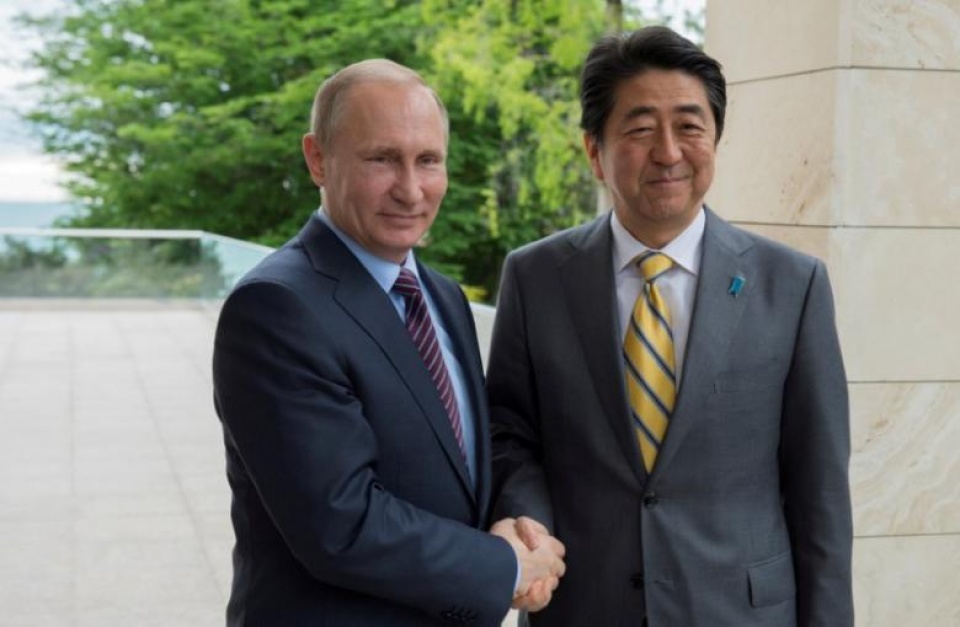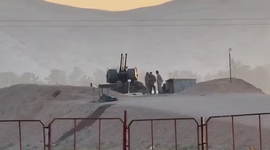While North Korea’s Leader Kim Jong Un and U.S. President Donald Trump have been engaged in a war of words, Japan has been boosting its relationship with Russia and China to counter North Korea’s nuclear missile threats.
"We will continue close cooperation with Russia and China on the North Korea’s issue," said Prime Minister Shinzo Abe during a press conference in Ise in Mie Prefecture, located in central Japan, on January 4, according to Japan’s daily The Mainichi.
Last year the Democratic People’s Republic of Korea (DPRK), better known as North Korea, launched three intercontinental ballistic missiles and more than 15 other ballistic missiles, including some that deliberately flew over mainland Japan but landed in the Pacific Ocean.
In September, Pyongyang conducted its sixth nuclear test, detonating a hydrogen bomb estimated at 100 kilotons – roughly four to five times stronger than the bomb the U.S. dropped on Nagasaki, Japan in 1945. The United Nations responded by unanimously adopting its ninth package of measures on North Korea, imposing a ban on the country’s textile exports and a ceiling on the country’s imports of crude oil.
Within the same month UN Security Council members, namely China and Russia, were suspected of supplying North Korea with fuel imports. Suspicions arose when eight ships departed from the Far Eastern Russian port of Vladivostok or nearby Nakhodka and listed China or South Korea as their destination. Reuters ship-tracking data noted that after leaving Russia, they were next recorded to be off the North Korean ports of Kimchaek, Chongjin, Hungnam or Najin.
Russia’s foreign ministry denied that oil tankers violated UN sanctions by supplying fuel to North Korea, declaring its full support to the sanctions.
Both Russia and China support a peaceful and diplomatic resolution to what are escalating tensions on the Korean peninsula, hoping it will not result in a detrimental humanitarian impact on civilians, or affect trade and economics within the region.
Denis Denisov, Director of the Institute for Peacekeeping Initiatives and Conflictology, told Caspian News that Russian support of North Korea is no surprise.
“As far as possible Russia will support the Korean regime as a counter to the United States, but at the same time the Kremlin will pursue a policy of restrictions and sanctions. Currently, North Korea is an instrument in negotiations with the U.S., but it’s not a separate issue for Russia,” he said.
At the same time, Prime Minister Abe believes Japan must strengthen its defense capabilities against the backdrop of North Korea’s growing nuclear missile threat. In November, during Trump’s visit to Japan, Abe discussed purchasing more defense systems from the U.S. as a precautionary step.
“We believe that we must bolster Japan’s defensive strength qualitatively and quantitatively,” Abe said during Trump’s November visit. “We will be buying more from the United States. That’s what I’m thinking.”
Japan increased its military budget by 1.3 percent, to 5.19 trillion yen ($44 billion) for fiscal 2018, 100 billion yen (about $889 million) of which the country will allocate for buying and deploying two American anti-ballistic missile Aegis Ashore systems that are developed for warships and consist of radars, computers and interceptor missiles. They will not be deployed to Japan until 2023, however, but will be added to Japan’s current two-layer ballistic missile defense system, consisting of the sea-based Aegis system on destroyers, and the land-based Patriot interceptor batteries used by the Ground Self-Defense Force.
Abe plans to revise the National Defense Program Guidelines this year, which will reform the country’s basic defense policy and specify the number and kinds of major weapons Japan plans to acquire over the next 10 years.







 The Mine Action Agency of Azerbaijan (ANAMA) reported on Thursday the discovery of a significant amount of explosives in the Khojavand district of ...
The Mine Action Agency of Azerbaijan (ANAMA) reported on Thursday the discovery of a significant amount of explosives in the Khojavand district of ...
 Russian peacekeeping forces, deployed in the Karabakh (Garabagh) region of Azerbaijan since 2020, have commenced their withdrawal from the area.
Russian peacekeeping forces, deployed in the Karabakh (Garabagh) region of Azerbaijan since 2020, have commenced their withdrawal from the area.
 Azerbaijan officially unveiled the logo for the upcoming 29th session of the Conference of the Parties to the United Nations Framework Convention o...
Azerbaijan officially unveiled the logo for the upcoming 29th session of the Conference of the Parties to the United Nations Framework Convention o...
 The Kazakh authorities have increased their arbitration claims against international oil companies involved in the development of the Kashagan oil ...
The Kazakh authorities have increased their arbitration claims against international oil companies involved in the development of the Kashagan oil ...



